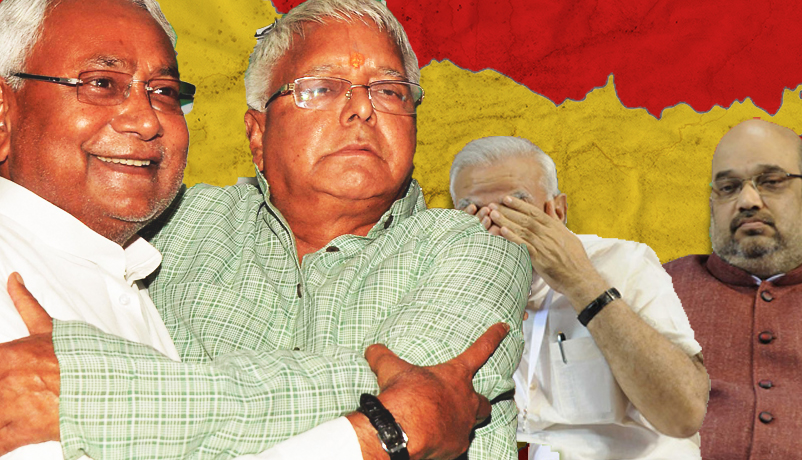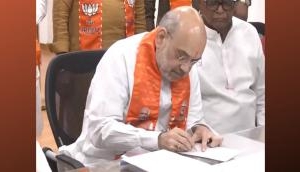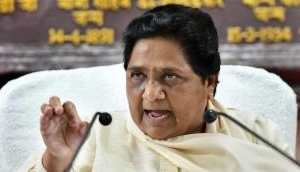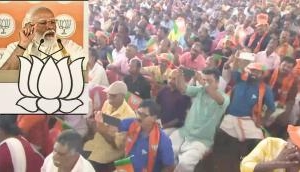Ears to the ground: Bihar's political analysts break down the verdict

The verdict
- The grand alliance won almost three-quarters of the seats in the Bihar election
- Political observers in Bihar feel there was an anti-incumbancy factor - not local, but national
The analysis
- The observers agree that Nitish has brought Lalu back into the mainstream
- Many predict an uneasy alliance between the partners, who have, for long, been bitter rivals
More in the story
- What were the factors that helped Nitish trump the Modi factor?
- Whether the return of jungle raj is a real fear
The grand alliance has secured almost three-quarters of the seats in the Bihar assembly election. But what are its implications for the state? Catch tries to decode the message in the mandate through those who had their ears to the ground - the political observers from the state.
Clear indication of national anti-incumbency
Prof Naval Kishore Chaudhary, former principal, Patna College, says: "This mandate clearly indicates that there was anti-incumbency in Bihar. However, it was not local but national anti-incumbency. People got disenchanted with Modi very soon, because their expectations had been raised too high.
Read: Congratulations Nitish Kumar! But here's what we'll be watching you for.
Secondly, the caste card has won and the religion card has lost. The fringe element of the Sangh Parivar had alienated a section of right-thinking people in the state. Besides, the minority vote was at a stage of aggressive consolidation. There has been a repeat of the Mandal phenomena.
Women have also voted for Nitish in large numbers. He is the real gainer. Even if he had lost, he would have gained in stature at the national level because he has become a symbol of the anti-Modi sentiment.
I suspect a tacit understanding was reached between RSS chief Mohan Bhagwat and Nitish. Bhagwat knew fully well the adverse impact the reservation comment will have on the BJP's prospects.
I suspect a tacit understanding was reached between RSS chief Mohan Bhagwat and Nitish Kumar
As for the future of Bihar under the new dispensation, the return of lawlessness and malgovernance can not be ruled out. Lalu will call the shots because of the sheer number of seats that the RJD has won.
However, Nitish is not Manmohan Singh. He, too, will assert himself, which will result in the creation of two power-centres. A tussle between the two is imminent. When that will happen, the bureaucracy will be split in two camps. Theoretically, the government could become unstable in a few months."
Nitish has brought Lalu back in the mainstream
Vinod Anupam, political analyst, says: "Lalu is the biggest gainer in these elections. Nitish will become CM again, but his support base has shrunk. He will increasingly feel pressure from Lalu. The RJD leader had been relegated to the margins. Nitish is responsible for bringing him back to the mainstream.
Nitish has also proved that his so-called politics of development was an illusion. At the first sign of threat, he turned to caste. Bihar had moved two steps ahead in his two terms. This mandate has pulled it back by two steps.
Bihar had moved two steps ahead in Nitish's two terms. This mandate has pulled it back by two steps
This mandate is only because of caste-based polarisation, and that could be dangerous for Bihar's development.
After government formation, Lalu is predisposed to assert his will and will pressurise Nitish. However, Nitish's personality is such that he will not surrender. In such a scenario, we will have to wait and see for how long will the government run.
In the BJP, while may not have much impact on Narendra Modi, there will definitely be implications for Amit Shah. He erred in understanding the mind of the Bihari electorate. The beef issue did not work. Muslims had decided quite early on that they will vote for Nitish and Lalu. Party workers will rise in protest against this error and their voices will reach the RSS leadership."
No fear of jungle raj in today's Bihar
Mahendra Suman, political analyst, says: "This is a landslide for the grand alliance. Considering the size of Bihar as the third most populous state in the country, this is a big victory - even bigger than Delhi - and will have a big impact on national politics.
Its first impact on the BJP will be that there's likely to be internal dissent against Modi.
The grand alliance proved to be a practical alliance. They have got 25-30% of the upper-caste vote as well. In Bihar, caste and development are intertwined, so development and social justice were twin issues.
On both these counts, the grand alliance was too strong for Modi to counter. On the parameter of development, Nitish trumps Modi. On social justice, Lalu trumps Modi. There was no way for the NDA to counter the duo on these.
On the parameter of development, Nitish trumps Modi. On social justice, Lalu trumps Modi
So the BJP got desperate, especially after the third phase. However, voters saw through its divisive tactics and decided to opt for the grand alliance.
As far as the future is concerned, there is no fear of jungle raj in today's Bihar. Had Lalu won on his own, even then there would be no fear. With Nitish's presence, there is a major deterrent. Only, Nitish should now control his national ambitions.
The other important thing to take note of is the Congress's revival. After Bihar, the party can now grow in Bengal, UP, MP, Rajasthan and other states."
Negative politics cost BJP elections
Shrikant, director, Jagjivan Ram Institute of Parliamentary Studies and Political Research, Patna, says: "We had expected this kind of verdict in Bihar. The survey we conducted in collaboration with CSDS had predicted around 150 seats for the grand alliance.
It would be interesting to see the impact of this election in the near future. It is the first major defeat for the BJP after the Delhi assembly elections. This result will have far reaching effect as Bihar is the first major state to reject Modi's BJP after the 2014 general elections.
The BJP's strategy was to rake up different issues according to the various phases of polling. However, this ploy fell flat on its face. The development plank of the first phase shifted to the issue of reservation in the second and third phases. Thereafter, it was an all-out attempt to polarise the electorate in the last round.
This type of game plan was relevant two decades ago, when the information revolution had not taken place. Today, mass media foils political opportunism in no time. You just cannot change your agenda in every phase.
Mass media foils political opportunism in no time. You just cannot change your agenda in every phase
The strategy of negative campaigning proved costly to the BJP. Bihar has always set political trends in India. The state never saw such a divisive campaign since 1942. All means of modern communication were deployed to spoil the atmosphere. The BJP reduced its campaign to merely two faces; Narendra Modi and Amit Shah. The underplaying of local leadership worked against the party.
Bihar's verdict will have national ramifications. It will give new courage to the opposition parties. Nitish Kumar may emerge as a rallying personality for a national alternative. The result will also weaken regional players like Paswan and Manjhi. These two leaders failed to transfer their votes to the BJP. Their opportunistic politics was exposed. There is a hope that such brand of politics will lose relevance in Bihar now."
This is the defeat of communal politics
Gyaneshwar, Patna-based senior journalist, says: "Bihar has outrightly rejected communal politics. The verdict has made it clear that the people of Bihar still trust Nitish Kumar. He still enjoys their confidence like a decade ago, when people elected him for the first time.
There was no anti-incumbency wave in Bihar. The BJP simply failed to provide an alternative to Nitish in these elections. Therefore, the victory was not unprecedented.
People disapproved of the BJP's attempts to divide the voters. The party used the ruse of development to divide the voters along communal lines. Skyrocketing prices also hurt its prospects. The Prime Minister did not bother to visit Bihar during his first 14 months in office. However, he started going to the level of Panchayats once the elections were round the corner.
The BJP failed to understand the sentiment of Bihar. The mood of the people had changed since the 2014 general elections. The party was saved from a complete rout by partners like Jitan Ram Manjhi and Mukesh Sahni.
These elections have established the supremacy of Nitish above all other leaders in Bihar. It is a proven fact that he is still popular among the masses. While Lalu and Modi engaged in a verbal duel during the elections, Nitish remained focussed on the issues.
The failure to project a leader to counter Nitish was among the major reasons for the BJP's defeat. It is also a victory of the social engineering formula of Lalu and Nitish.
None of the cards the BJP played delivered results. RSS chief Mohan Bhagwat's anti-reservation remark added salt to its wounds. Bhagwat's call to 'review the reservation policy' alienated a large chunk of voters from the BJP.
The way Modi changed his caste during the campaign also backfired. He claimed to be an OBC on some occasions and EBC on others. People were also angry at Amit Shah's Pakistan jibe. Maybe Shah failed to realise that Bihar is not a part of Pakistan.
The way Modi changed his caste also backfired. He claimed to be an OBC some times and EBC on others
This defeat will also embolden disgruntled elements with in the BJP. They are likely to be more vociferous against the Modi-Shah duo. It was the second big setback for Shah after the Delhi elections. Even Shiv Sena has advised Modi to take responsibility for the defeat.
Meanwhile, questions remain over the composition of the next government in Bihar. Who will be the deputy CM of the state? Will Lalu and Nitish get along?
Unlike BJP leader Sushil Kumar Modi, the RJD supremo will not be a passive supporter of Nitish. He is also senior to Nitish in Bihar politics. Both JD(U) and RJD have separate agendas.
Despite being the bigger partner, RJD is unlikely to get the portfolio of deputy CM. Lalu would rather like his sons to graduate into seasoned politicians over the next five years."
Bhagwat's reservation comments ensured majority for the grand alliance
Surendra Kishore, senior journalist, says: "The BJP has been defeated by the Muslim and Yadav (M-Y) combination, along with the good governance of Nitish Kumar. It is a bigger victory for Lalu and Nitish than a defeat for Modi.
It was an even contest between the two alliances before polling. But, RSS chief Mohan Bhagwat's call for a review of the reservation policy ensured a majority for the grand alliance. Lalu portrayed this statement as the BJP's bid to do away with reservations altogether. This had an effect on the backward classes of Bihar. Reservation is a sensitive issue in Bihar and Lalu was able to capitalise on it.
Reservation is a sensitive issue in Bihar and Lalu was able to capitalise on Bhagwat's statement
The BJP had the image of a comparatively clean party. However, this image took a beating when allegations of selling of tickets to musclemen were made. It was hard for people to differentiate between the RJD and the BJP.
Nitish is all set to continue as the CM, but many people have reservations about Lalu Prasad. However, he has changed a lot over the years. He will find it difficult to part ways with Nitish.
Nitish is considered a tough administrator. He is unlikely to buckle under pressure from Lalu."
With inputs from Atul Chaurasia.
Also read- #BiharResults: what Nitish-Lalu victory means. And why it matters beyond Bihar
#BiharResults: 10 factors on which Bihar voted
Bihar verdict: the idea of India is at stake
First published: 9 November 2015, 12:00 IST







![BJP's Kapil Mishra recreates Shankar Mahadevan’s ‘Breathless’ song to highlight Delhi pollution [WATCH] BJP's Kapil Mishra recreates Shankar Mahadevan’s ‘Breathless’ song to highlight Delhi pollution [WATCH]](http://images.catchnews.com/upload/2022/11/03/kapil-mishra_240884_300x172.png)

![Anupam Kher shares pictures of his toned body on 67th birthday [MUST SEE] Anupam Kher shares pictures of his toned body on 67th birthday [MUST SEE]](http://images.catchnews.com/upload/2022/03/07/Anupam_kher_231145_300x172.jpg)






